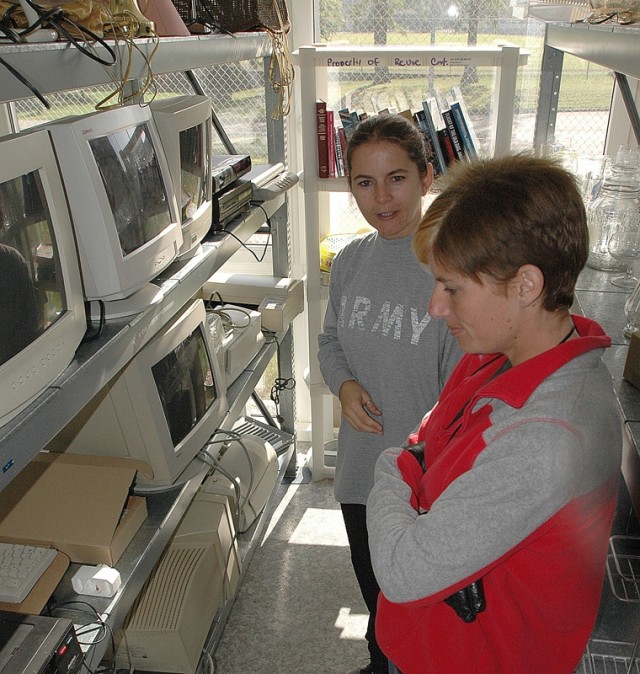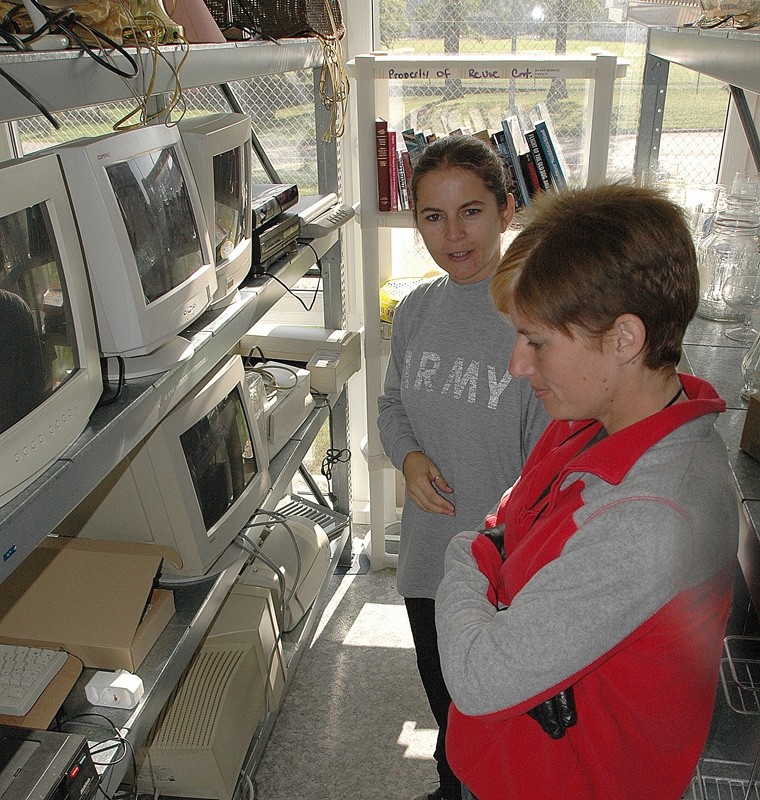HEIDELBERG, Germany - Few things in life are completely win-win, but a military reuse center here is breaking the code. Located next to the community recycling point on Patrick Henry Village, the center is reducing trash, helping the environment and providing hundreds of free items to people that need them - all while saving the Army money.
The center is staffed by four volunteers and accepts just about any item you could think of - then offers the item at absolutely no cost to any ID card holder who needs it.
The volunteers work should make every community resident pause before tossing something in the dumpster or a bin at the recycling point. Ask yourself: "Could someone else use this'"
Every day, people moving back to the United States, or just de-cluttering their homes, drop off household leftover cleaning supplies, clothing, dishes, furniture, 220-volt appliances and other perfectly good items that others might have simply thrown away.
Through the reuse center, these donated items find their way back into the community and stay out of the trash, helping to trim the $4.3 million the Heidelberg garrison spent last year disposing of solid trash, said Travis Vowinkel, garrison solid waste manager.
Denise Waldon, military family member living on PHV, visits the three-month-old facility almost daily.
"It's a cost effective way to provide things for my family," she said. "We have three children and my husband is a specialist. I bring stuff myself, and when I find something I can use, it's great."
Lead volunteer for the center, Aniko Ibsen, and three assistants keep everything organized.
"I started working here about two months ago," said the Hungarian native. "I have lots of time on my hands, and I love to do it; it helps people. I want to encourage people to bring things here - that are working - instead of taking it to the recycling point. There is a lot of stuff that should not be there."
Aniko's husband, Master Sgt. David Ibsen, U.S. Army, Europe's G3 operations, tallies up the donation numbers and assists his wife on weekends, but it's Aniko who knows what is most popular.
"A lot of people come looking for kids clothes because they are expensive," she said, "and kids might wear them once and outgrow them."
Another category is the expensive, intermittent-use item. Amadi Franklin recently found some child-sized suitcases for his kids, saying, "When they outgrow them, I'll be bringing them back."
The reuse center was also invaluable to Karen and Ronald Nichols, who were in a bind due to their quick move back to the United States.
They were donating German extension cords, a Christmas tree stand, and other appliances because, according to Karen, "it's either 220 (voltage), or we have replaced it, or in our case who needs six VCRs' Nobody."
Rather than put it in the trash, the solution was simple. "We're bringing it here," she said.
The reuse center has few rules about what can be brought in, but they are very important, Ibsen said. The center cannot accept undergarments. Clothing should be clean. Food items cannot be accepted.
Items given out cannot be sold. It violates not only the spirit of the center, said Vowinkel, "but Army regulations forbidding home business and German law about tax and customs evasion."
The vast majority of her customers, said Ibsen, are honest. "I only wish people would not mess up the clothing as much (in looking through them) after I have folded them up."
"The volunteers are doing a fantastic job running the reuse center," said Vowinkel. "Without them, we could not have the kind of opening hours we have, and the neat appearance it has today."
"I think every community could make use of a reuse center," said Ibsen. "It's not that hard."
(Arthur McQueen is a member of the USAG Heidelberg Public Affairs Office)


Social Sharing